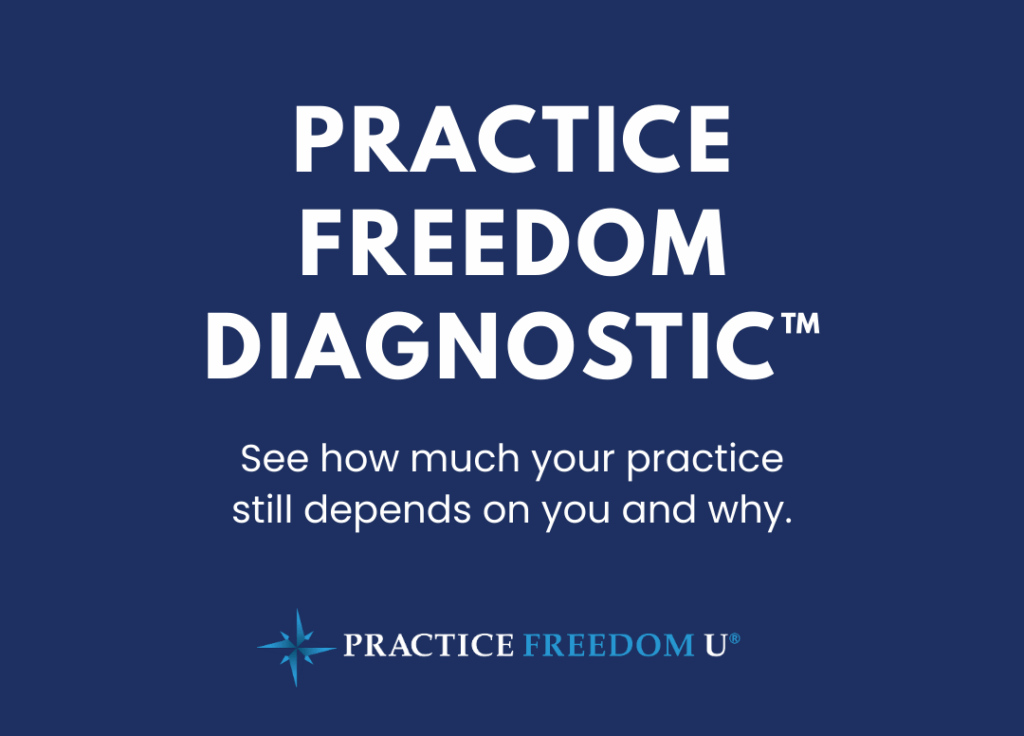Mindset is the way in which we think about things, approach problem solving, and generate ideas. Mindset includes our closely held beliefs and influences our choices and behaviors. Mindset is shaped by who we are, how we grew up, and what we’ve experienced. All of us have a unique mindset. Even when we share many things in common, there are still many things that are different about how we approach the world, our lives, and our daily choices. Let’s look at some of the mindsets at work in our lives.
Harvard Business School professor emeritus Chris Argyris categorizes two main mindsets: productive and defensive. A productive mindset prompts us to seek information so that we can make informed choices and it prompts us to share our reasoning so that transparency exists in our conversations and decision making. The productive mindset has been shown to be the most effective in managing ourselves and others. A defensive mindset works from the premise that the person needs to be protected and as a result, all information gathered and shared works together to create protection. A defensive mindset perceives the world as threatening. Is your mindset more protective or more productive?
Results-focus or experience-focus is another mindset continuum. With a results-focus, things get done. However, sometimes what gets done is at the expense of people and our relationship with them. With an experience-focus, we care about how people are feeling and experiencing each situation. However, sometimes the nurturing of relationships consume so much time and energy that needed tasks do not get completed. Results – or a lack thereof of measurable accomplishments – come from our choices and our actions. Actions come from mindsets, from what we believe about the world.
Some human resource practitioners tell us that our personalities are also drivers of our mindsets. For instance, an extroverted person makes decisions based on human relationship factors (among other things) whereas an introverted person is more likely to make decisions based on data factors (among other things). Here’s another personality example. A driver or dominant personality will make decisions based on what gets done; an expressive personality makes decisions based on how much fun something will be; a steady or amiable personality makes decisions based on how people will be affected while getting things done; and a detail-oriented person makes decisions based on producing quality work, even if it means people have to wait.
Yet another way to consider what your mindset includes is to ask yourself, Do I compare myself to others or do I observe in order to learn how I’m doing and what I can do to stabilize or improve my situation? Comparing ourselves to others can put us into a negative zone where we feel “less than”. Thinking others are better than we are. Making observations can help us to listen, learn and implement new strategies and actions that work together to help us achieve our goals. We can see what others are doing and inspire ourselves. Do you find yourself comparing your practice to others? Or, do you focus on making observations, learning from them, and making new decisions to support yourself and your practice?
What about an abundance mindset? You’ve probably heard of abundance thinking and scarcity thinking. This is another mindset continuum that shapes how we perceive the world around us. A growth or a fixed mindset is another way to think about abundance – there is plenty available for all of us to grow, or scarcity – there are a fixed number of resources and not all of us can access them. Consider how you view each opportunity for your practice. Do you believe that there is plenty of business for everyone (abundance) or do you find yourself fearful about having enough business (scarcity)?
Let’s look at a few more mindsets. Optimistic or pessimistic, realistic, or somewhere in between might be another mindset influencing you each day. An optimistic person believes the best about people and situations and believes that things will work out for good. A pessimistic person believes the worst about people and situations and believes that things most often don’t work out. And a realistic person builds upon life experiences to shape beliefs that in one case may be optimistic (such as family always helps out) or in another case may be pessimistic (however, I can’t count on cousin Joe). Which of these mindsets guides your thoughts? In what situations?
Frugal and spendthrift or Lavish and spend-everything. Our mindsets about money can be expressed in a variety of ways. Think about the places of business you have been in as a customer. Which of them made you think “Boy, they sure pinched pennies to finish out this space.”? Which of the spaces prompted a response of “they spared no expense to make this place look great?” Now consider how you want clients coming into your practice to feel.
Risk-taker or risk-averse. You probably have at least some risk-taking mindset or you would not have begun your own practice. That said, many of us still have things that cause us to be risk-averse. We avoid taking risks that we feel have downsides that are bigger than the upsides or positives.
None of us are 100% of one mindset at all times. We are all a combination of mindsets, perspectives, and beliefs. Sometimes we are abundant growth thinkers and other times we feel fixed scarcity. Sometimes we make a leap of faith and take a risk, while other times we go with what we know and don’t make any changes. Whatever our combinations of mindsets, we were shaped by a variety of factors and influences, and of course, we can always change.
What affects my mindset?
Understanding what affects our mindset is important because we have the power to shape and direct our mindset to lead ourselves to better decisions, take better actions, and achieve better results. Millions of things can affect our mindsets. Here’s a list that you can add to when you discover more about what and who is influencing you and how you think.
- Health. Your health and/or someone else’s health can affect how you process the world around you. When you are not healthy, it is more difficult to make good decisions.
- Fatigue. Like health, fatigue and not getting enough sleep can prevent us from learning, growing, and improving.
- Nutrition. “We are what we eat.” Well, maybe not, however, what we eat does affect our outlook. Good nutrition helps us be our best selves. Poor nutrition can leave us edgy and unhealthy.
- News and information. During the last decade, I’ve met people who decided to change their information sources because they wanted a more positive spin on stories. I’ve also talked with people who have completely stopped reading the paper and listening to newscasts so that they could regain a sense of hope about the world. What we take in can help us to feel optimistic and hopeful or to leave us feeling pessimistic.
- What we read. The ideas and information we put into our brains affect our mindset. What do you read each week? Is it contributing to your well-being, or not?
- Parents and family members. This group helped form our mindsets during our childhood years and may continue to shape what we know and believe in the present. What mindsets have you learned from your family?
- People: Teachers and professors, the people we spend time with at work, the people we spend time with at home, and friends. What others say, think, feel, and how they express themselves can cause us to be in a good mood, a grumpy mood, or even a neutral mood. Sometimes we take on the attitudes and behaviors of the people with whom we spend most of our time. Whom do you surround yourself with? Are they inspiring and encouraging or are they dragging you down and sapping your energy? Surround yourself with people who help you to be your best self, to stay in a positive frame of mind, and to keep your mindsets healthfully balanced.
Remember that we are all a combination of mindsets that may take different shapes depending on our life experiences and on the situations in which we find ourselves.
Can I improve or expand my mindset?
Yes. You can improve and expand your mindset. As our beliefs and assumptions change, our mindsets can change, thereby changing the reasoning used to solve problems and the actions we take, hopefully creating better results.
Our mindsets can be shaped by changing one or more of the things that influence our beliefs, assumptions, and decisions. Revisit the list above to identify two areas in which you can begin today to change your mindset. Maybe it’s changing who you go to lunch with. Maybe you will decide to change your news sources or to stop listening to the news for a month and focus on rediscovering yourself. Maybe you are struggling to generate new patients. If so, you can ask others for help, or read a book to learn new client generation skills.
Now that you know you can change, develop an action plan for the journey of shaping your own mindset rather than being solely shaped by others. Be proactive. Be selective about what goes into your brain. Be selective about who you spend time with and whom you listen to. Whether or not you agree with the people you are listening to, just being around them is influencing your subconscious – for good, or for negative, consequences. Sometimes our perspectives are influenced without really thinking about it.
Choose to spend time with people who are also continually learning, exploring, considering, and reconsidering. Spend time with people and activities that help you achieve your practice vision and your personal hopes and dreams.
How does mindset affect my practice?
Believing that you have to be a full-time clinician and lead the practice daily is a mindset – an unrealistic one if you want to achieve success in your practice’s growth and development. In fact, see my post about Treating clients and Running the Practice.
Operating as though your metrics and financials don’t matter as long as clients are coming in the door is another mindset that is unhealthy for your practice. What about the healthy mindsets that can positively affect the success of your practice? Here’s a starting list of helpful-to-you and your practice mindsets.
- I can learn something new every day.
- Little things can make a big difference. For instance, if we can reduce our cancellation rates by 3%, we will earn more income each week. If we increase our collections by 20%, the practice will be more profitable. If we communicate more effectively with one client a day, maybe we’ll discover that client is a long-term client working with us for more than a few sessions.
- I have, or can find, a mentor to help me continue learning how to run an effective practice.
- I have hired a great team. We are working well together for the success of the practice.
- People like coming to work. Or…people hate coming to work. Determine what mindset your team members are in so that you can lead accordingly.
- Understanding my finances and my financial dashboard is important.
- What mindsets would you add to this list?
You have the power to choose your mindset.
What will you choose?
Would you like to have a business that “runs like a well-oiled machine?” You will first need to have the right business mindset. Take the PT Practice Quiz and discover what’s working and what’s not in your practice…and what to do about it!


